By Kira Cordova
I’m totally unaccustomed to rain. I was born in Arizona and grew up in Colorado, so I’ve lived almost all of my life in places that are technically deserts. So when I moved to Bilbao to study abroad, I was awestruck by the conversance people who live in the city have with liquid precipitation.
When it rains, Bilbainos perform a well-rehearsed choreography, and there’s one essential prop: umbrellas. Collective lifelong training in how to avoid dripping runoff on one another’s shoulders melds into a flawless dance in the streets, and people seem to magically know how to move their umbrellas around others’ in three dimensions.
On Thursday nights, I interrupted that delicate choreography in order for the professors of the language center at the University of Deusto to kick my butt at traditional Basque dance.
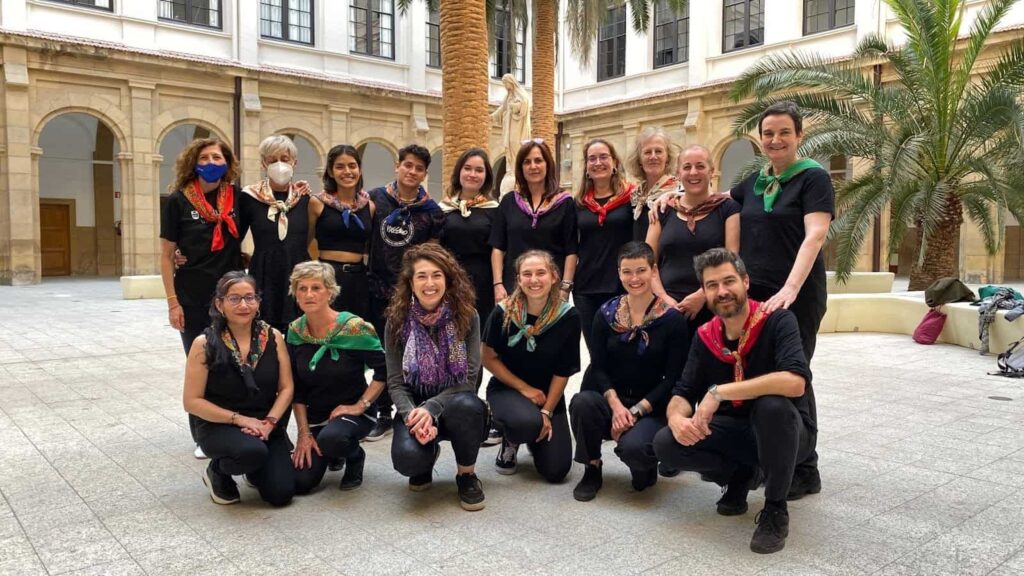
While we dripped sweat, they taught our group of international students how to count and say left and right in Euskera (also known as Basque). After class, they taught us the best places to grab a caña (half-pint) of beer near the university, where they then offered us life advice.
Before I studied abroad, I had never left the United States. When I told one of the professors that fact, she asked if I knew anyone in my program, and if I was nervous when I arrived. I admitted that I didn’t know anyone, and I was equally enchanted and terrified.
She laughed but insisted, “You can only really travel when you’re alone. If you’re with people you know, you’re not challenging yourself, and it’s [really] a vacation.” She was right.
Back at Western, I study Spanish and recreation and outdoor education (ROE). Spanish is my dad’s first language, but I didn’t grow up bilingual, so I always knew that I wanted to study the language and that I wanted to study abroad in a Spanish-speaking country to become more proficient.
During the 2021-2022 academic year, I studied abroad in Bilbao in the Spanish Basque Country with one of Western’s affiliate study-abroad providers: International Studies Abroad (ISA). Affiliate providers are companies that accept Western’s financial aid and facilitate registration and credit-transfer at international host universities. Many, including ISA, also organize cultural excursions and help participants find student housing or host families.

For seven months, I lived with a Spanish host family and studied Spanish language and culture at the University of Deusto.
ISA contracts with the Centro Internacional de Español (The International Spanish Center, known by its acronym in Spanish: CIDE), a study abroad exchange program for North American students at Deusto.
CIDE offers classes that coincide with the North American academic year (so students studying for only one semester don’t have to choose between starting their new semester in the States or Canada and taking their finals in Spain).
CIDE classes additionally focus on Spanish language acquisition for native English speakers. In addition to everything from Spanish 101 to advanced conversation and writing, CIDE offers classes like grammar through gastronomy, Spanish for medical professions, and gender themes in Spanish society in English and Spanish.
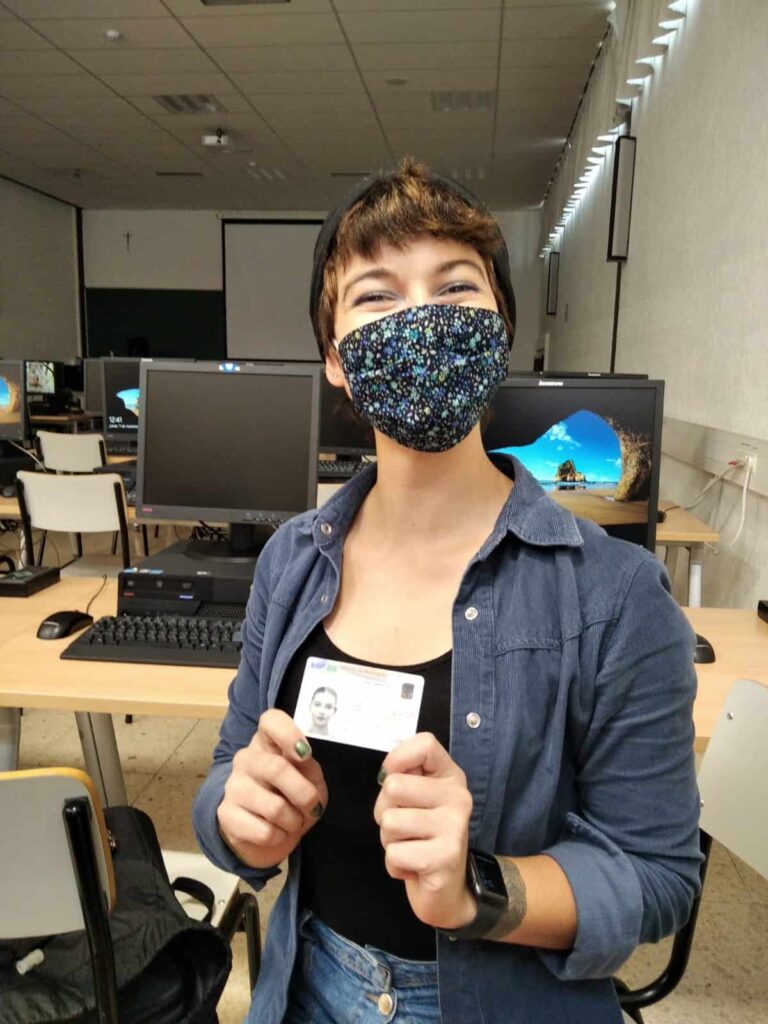
Since I had already completed the grammar and conversation classes for my Spanish degree at Western, and because I wanted to speak as little English as possible during my time in Bilbao, I took a mix of CIDE literature, gender studies, and culture classes in Spanish, in addition to classes in philosophy, cultural studies, and literature offered in Spanish with local students (these transferred back to Western as both Spanish and general education credits).
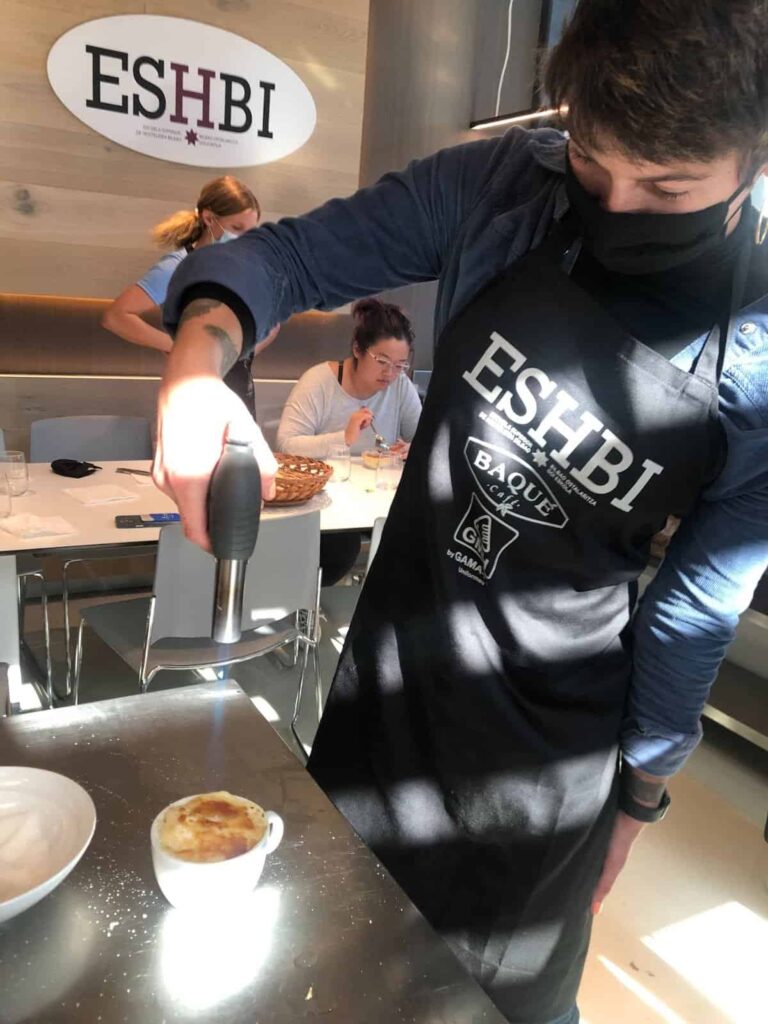
Outside of class — in addition to Basque dance — I tutored individuals from age five to 45 in English and taught upright bass with Etorkizuna Musikatan, a nonprofit that promotes social inclusion and justice through classical music.
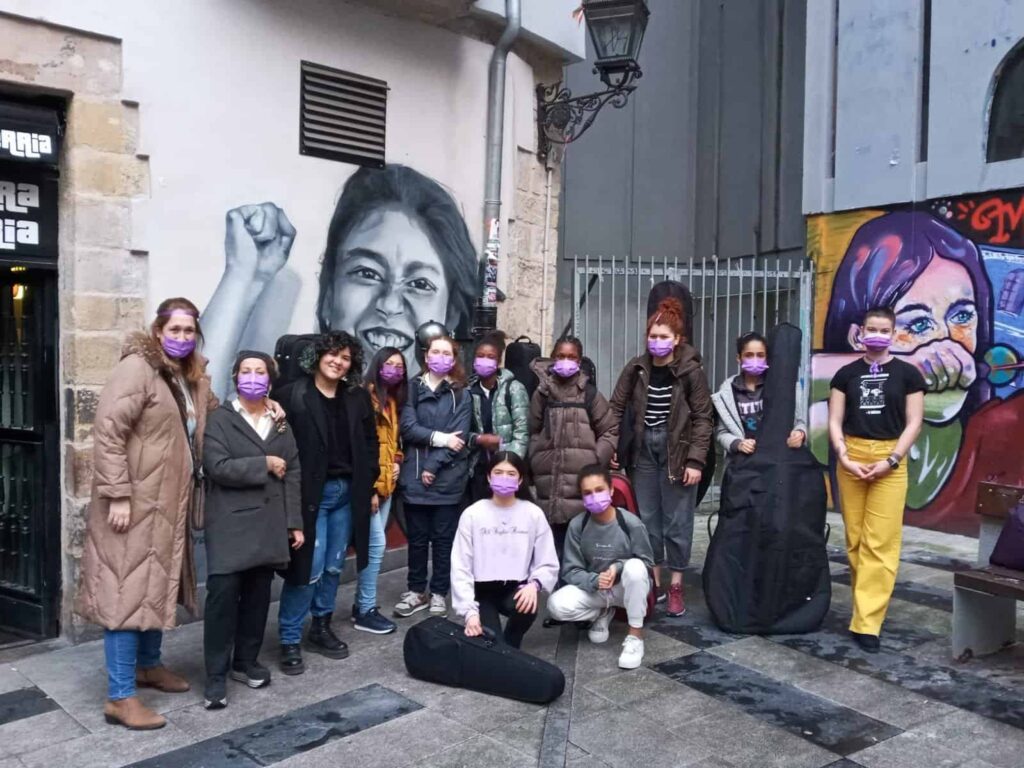
I also helped with winter maintenance on the tall ship Atyla, an all-wooden sail training topsail schooner built in the Basque country in 1984.
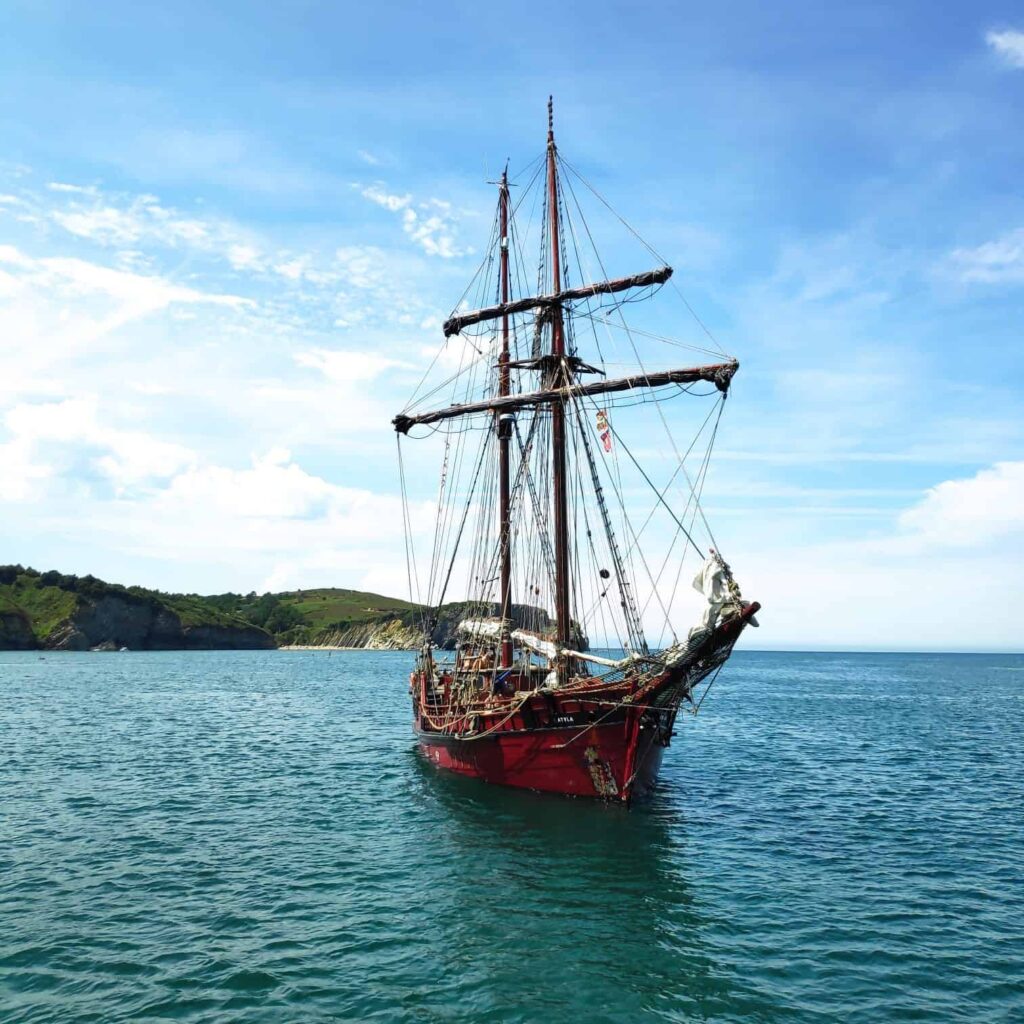
I’ve worked on tall ships in the United States before, and, after winter maintenance, the Atyla Foundation offered me a volunteer position onboard as the coach and a watch leader during the sailing season — April through October.
The coach facilitates and debriefs challenges (team-building and personal development initiatives), and watch leaders are deckhand educators who teach and supervise setting sails, navigation, maintenance, and other elements of living onboard a tall ship. To accept the position, I decided to postpone my last year at Western and take a gap year.
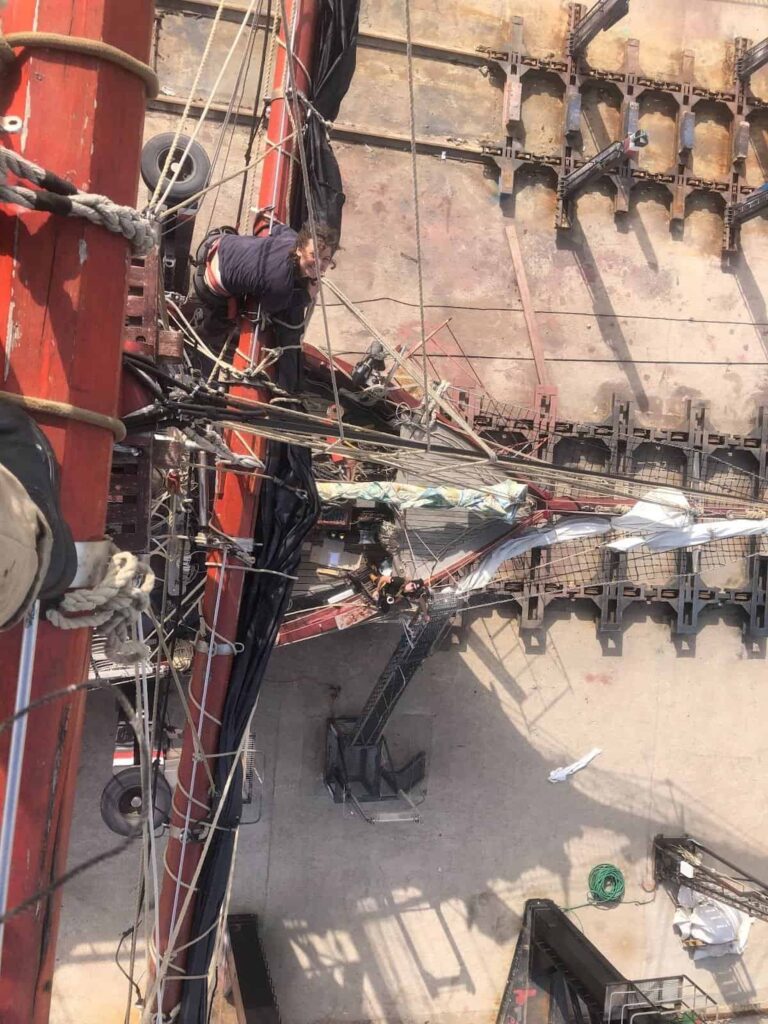
Because extending my visa to stay for the whole sailing season would have required changing my residency type, it turned out to be easier to leave the Schengen Area for 90 days and reenter Spain on a tourist visa.
So after my ISA program ended in May, I did farm work in Ireland and Scotland for three months through the organization Worldwide Opportunities on Organic Farms (WWOOF) before returning to Atyla and Spain in August.
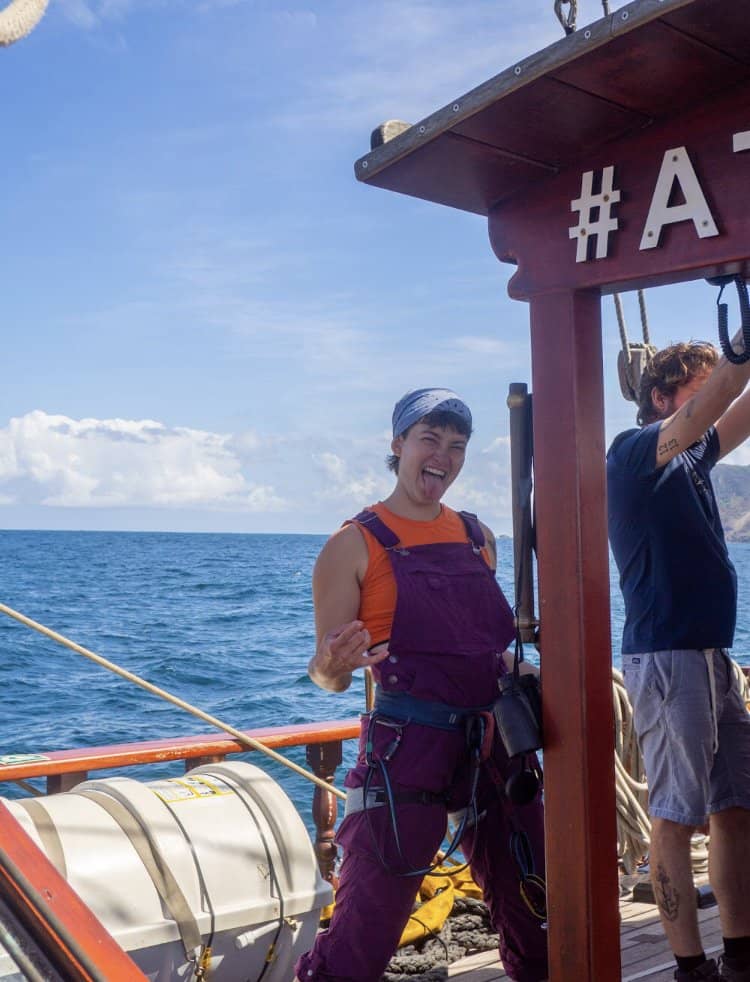
WWOOF connects volunteers with hosts on organic farms around the world. WWOOFing typically involves working a set amount of hours a week on the farm in exchange for room, board, and the host’s organic farming expertise.
In June, I worked in a small organic market garden on the south coast of Connemara in County Galway in Ireland called Gort an Stoiricín. At Gort an Stoiricín, gardener Pat Keady is combining horticulture knowledge he learned in County Cork with his extensive knowledge about his native Connemara to grow organic, local veg in the unique climate.
In addition to assisting operations in the garden, I helped build a 70-meter polytunnel at a nearby garden Keady collaborates with and learned some very basic Irish (Southern Connemara is part of the Galway Gaeltacht area, where Irish is still the predominant language spoken at home).
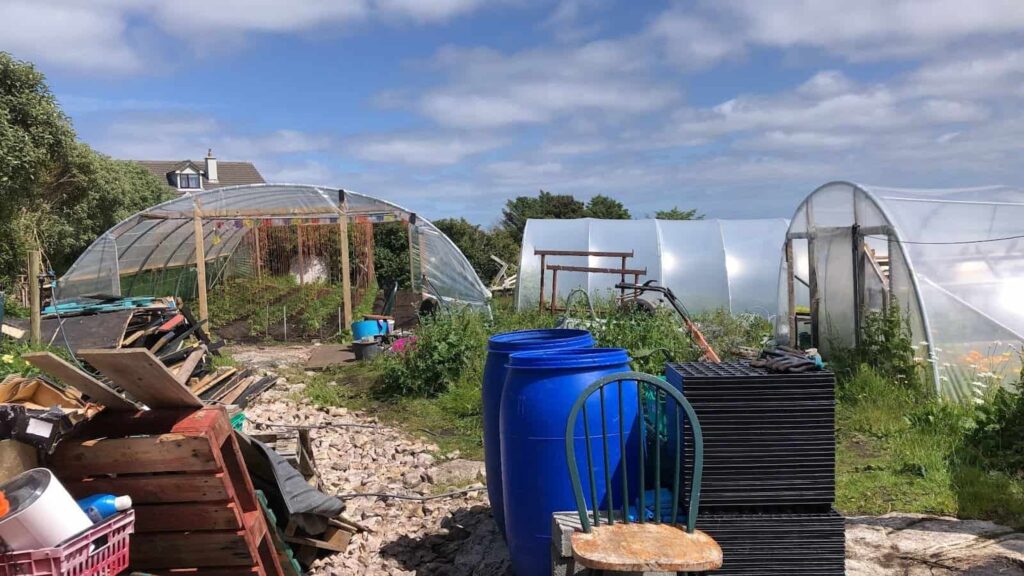
In July, I moved to the North of County Antrim in Northern Ireland to work on a farm called Broughgammon that produces organic goat meat, lamb, pork, veal, seasonal game meat, and veggies.
At Broughgammon, the Cole family began producing cabrito (young goat meat) with male kid goats that goat dairy producers were putting down at birth. From there, they branched out into more varied meat production, agroforestry, vegetable production, and educational programs. Broughgammon has an on-site butchery and sells meat in Northern Ireland and the Republic of Ireland.
When she’s not farming, Becky Cole runs foraging and herbalism workshops at Broughgammon and has a podcast called Nature & Nourish. She has also written the book The Garden Apothecary about medicinal plants.
As a WWOOFer at Broughgammon, I mostly worked in the vegge fields and with the polytunnels, while trying to soak up as much knowledge as possible from the Coles!
On my days off, I was able to explore Northern Ireland, reconnecting with my cousin who lives in Belfast, visiting a tall ship festival in Derry, and going to many museums and on many tours relating to both shipbuilding and The Troubles.
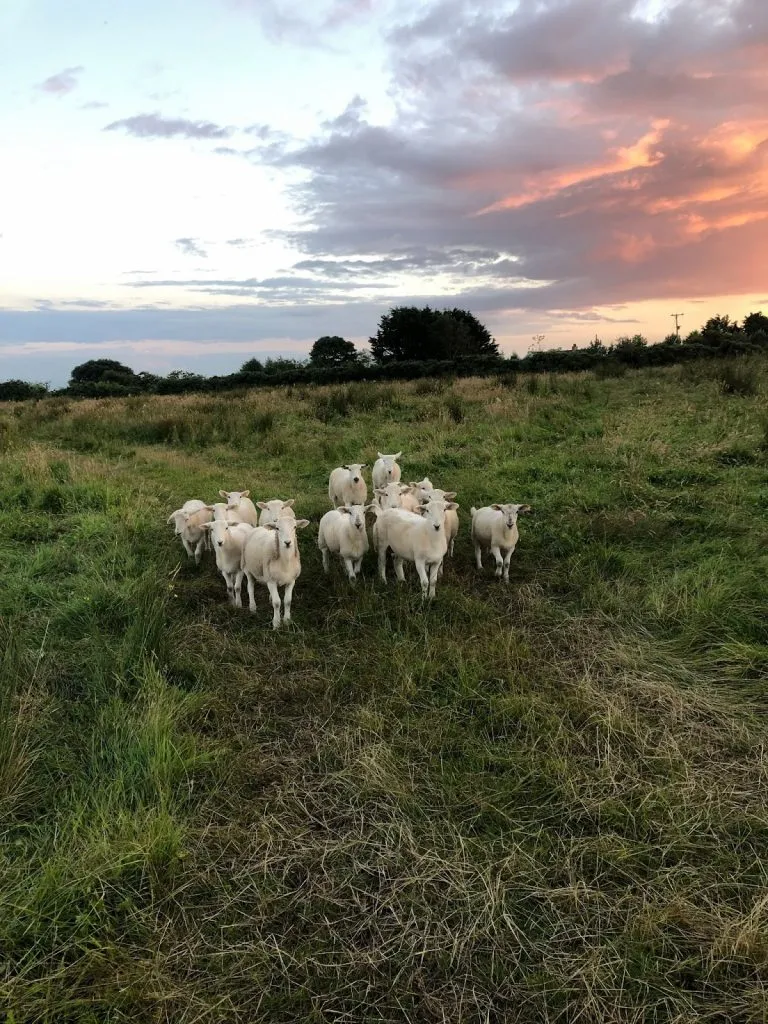
In August, I volunteered at Portnellan, an organic beef farm on the coast of Loch Lomond in Scotland. At Portnellan, the Scott-Park family produces organic beef and runs glamping and farmhouse accommodation, rents kayaks and paddleboards, offers boat tours of Loch Lomond, and manages 22 boat moorings on the loch.
As a WWOOFer, I worked with the cows and cleaned and prepared the glamping tent and farmhouse between visitors (and played my guitar in several bagpipe jam sessions).
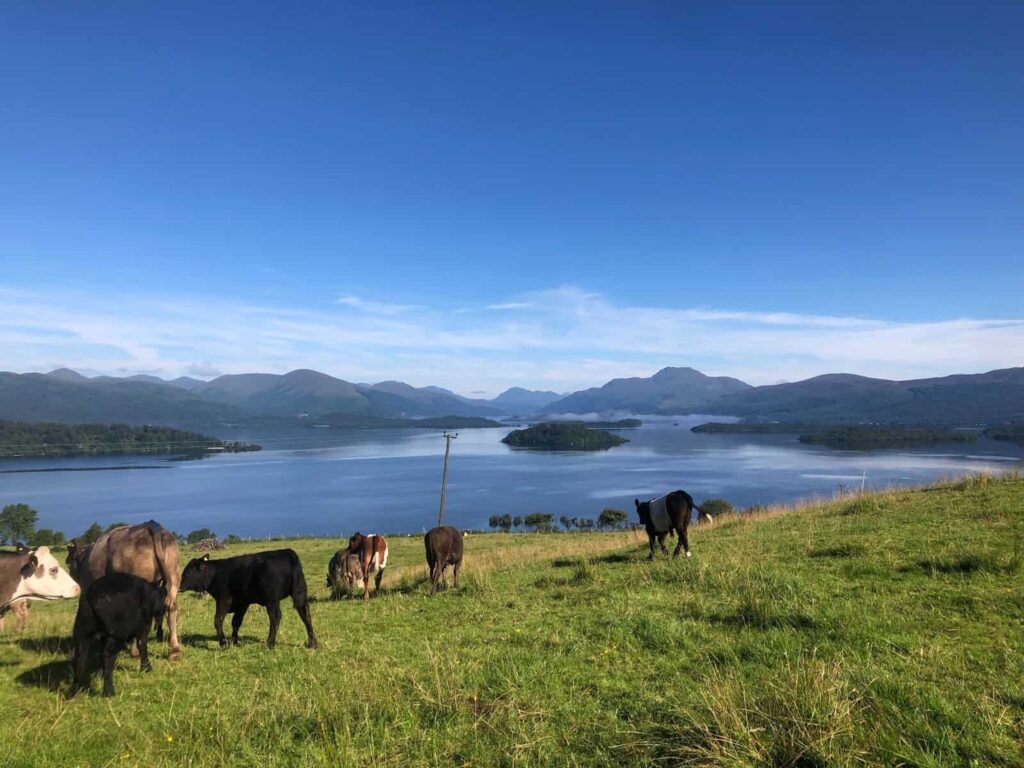
WWOOFing in Ireland and Scotland over the summer was not only a remarkable learning opportunity in horticulture and agriculture, but also a continuation of the cultural exchange exchange I got to experience while living in Bilbao.
Living with four families in three countries in the last year (that spoke three different languages), it was incredibly powerful to see and hear about the direct effects of issues like language, conflict, nationalism, and reconciliation in different places across western Europe.
And I’m so grateful for the greater understanding of how European colonialism and geopolitical issues have both laid the foundation for and paralleled social justice issues in the States (and the subsequent insight into possible solutions…and also what definitely not to do).
And on a personal level, studying abroad has also been an exquisite exercise in developing resilience.
When I returned to Atyla at the end of August, I immediately noticed parallels between the program onboard and my experiences studying abroad.
Atyla’s mission is to facilitate the development of life skills through sail training; the idea is to challenge participants in a safe environment that allows them to explore new and often uncomfortable situations and find solutions that they can apply on and offboard the ship.
One of the eight skills the program highlights is resilience, which the Atyla Foundation develops by embracing and highlighting the often alien environment onboard for many participants.
The foundation defines resilience as follows: “The ship (like the world) is an ever-changing environment where plans get altered constantly. So we learn to embrace uncertainty, to cope with changes and to adapt to them.”
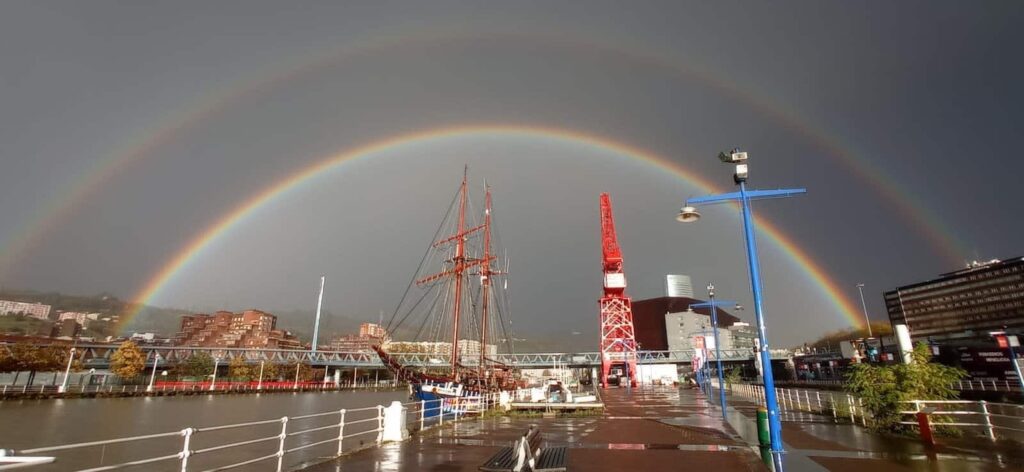
For me, studying abroad was a safe environment to explore uncomfortable situations. Moving to a new continent to learn a new language often challenged me. Studying abroad was frequently magical and enchanting, but when I first moved to Bilbao, even things like running errands or chatting with my classmates that would be easy in the States became frustratingly difficult.
However, pushing through that frustration and uncertainty helped me to not only develop new language and intercultural communication skills, but also comfortability pushing through situations that induce those emotions in any context.
In keeping with that theme of universality, Miguel de Unamuno, a writer and philosopher from Bilbao, wrote a poem in 1908 titled, “El mundo entero es un Bilbao más grande”, which translates to: the whole world is a bigger Bilbao).
While Bilbaínos can and frequently do make a lot of jokes about the poem and its catchphrase-y title, living in Bilbao has indeed been a beautiful microcosm of the world.
